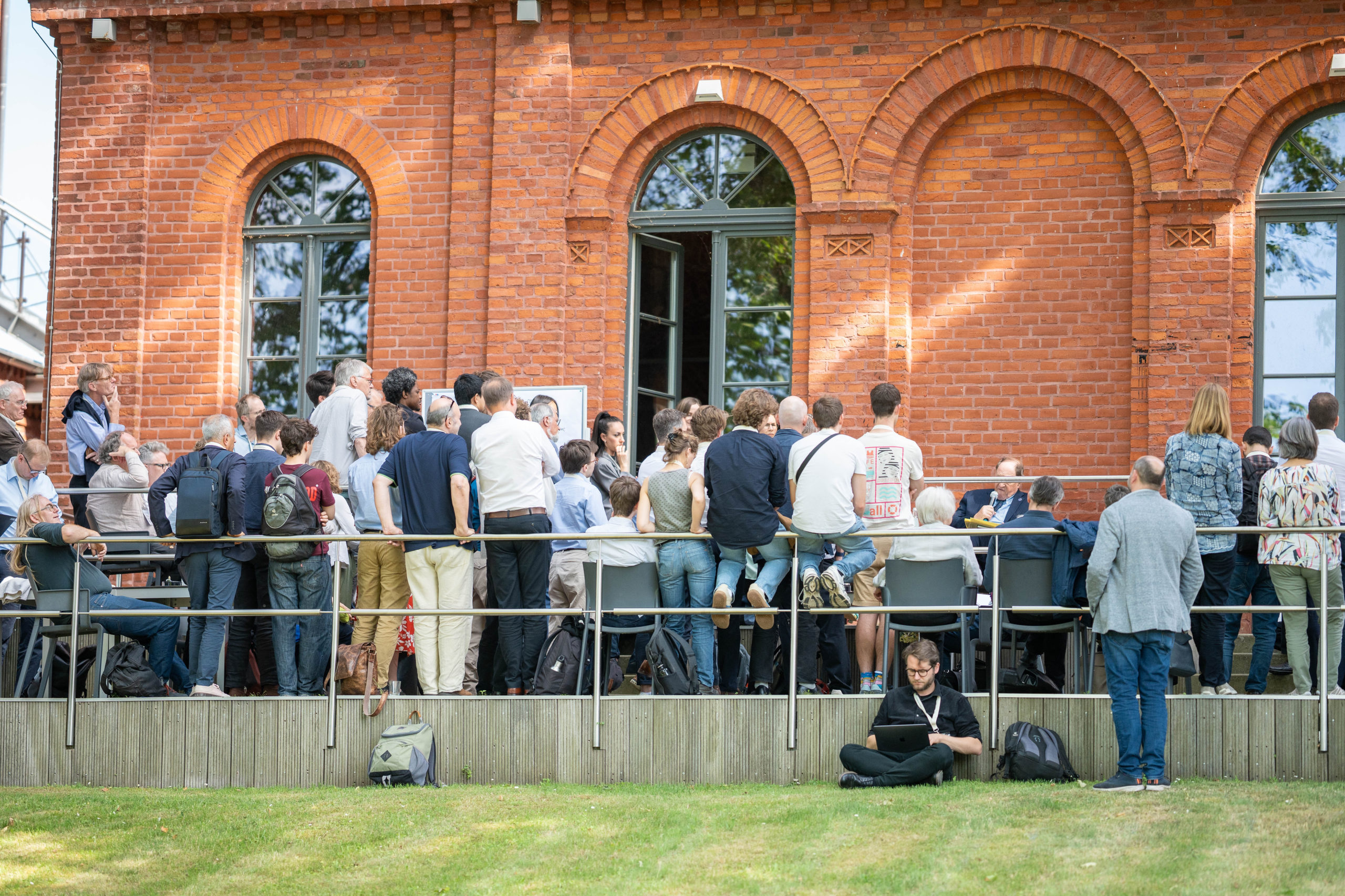NEW PARADIGM
The Berlin Summit 2025: Blueprints for the world after the big shock
In mid-June, dozens of leading experts gathered near Berlin to explore what economic policy and globalisation would need to look like in the future in order to reverse the rise of populism.
BY
FORUM NEW ECONOMYPUBLISHED
16. JUNE 2025
“The old world is dying, and the new world struggles to be born: now is the time of monsters.” What the philosopher Antonio Gramsci wrote about the 1930s rings true again in 2025. But what will the new world look like? What will replace the old order shaped by faith in free markets and globalization? What does forward-looking industrial policy look like—one that doesn’t just react to crises? What kind of climate policy truly brings people on board? And what might a better steered globalization look like—without trade wars or the abuse of power by tech giants?
From June 11 to 13, leading thinkers from around the world came together to explore these questions at the second Berlin Summit—building on last year’s Berlin Declaration (Winning back the People). On Wednesday and Thursday in smaller working groups; on Friday, we opened the doors to a wider public. The setting: the Stober Estate on the edge of Berlin.
Please find all links to key outcomes from the Summit as well as recordings and videos linked below.
At the opening of the Berlin Summit 2025, key thought leaders reflected on the development and relevance of the Berlin Declaration one year after its publication.
Why do people turn to populist parties—even in economically stable regions? A debate on trust, cultural anxiety, and the blind spots of the political center.
Can democratic parties succeed in winning back voters by restricting migration or does this strategy further bolster support for right-wing populists? At the Berlin Summit, we explored the empirical link between migration and populism.
During the discussion on Europe’s digital sovereignty at the Berlin Summit 2025, there was a consensus that this would not be secured by regulation alone but would require the targeted development of Europe’s own technological infrastructures. Coordinated European efforts are needed to avoid path dependencies and long-term dependence on global platform players.
Click here for the summary and interview.
At the Berlin Summit, leading experts reflected on recent industrial policy experiences in Europe and the US and explored the lessons that can guide the design of effective future strategies.
At the opening of the Berlin Summit 2025, key thought leaders reflected on the development and relevance of the Berlin Declaration one year after its publication.
How can Europe foster a political culture that is both welcoming to foreign workers and responsive to public concerns over migration (without validating xenophobic narratives)? At the Berlin Summit, the “migration bargain” was presented as a possible way out of this dilemma.
This Summit Session focused on the unintended consequences of post-crisis monetary frameworks and the case for reform, especially through a two-tier reserve remuneration system.
Building on last year’s session on ‘Modern Climate Policy’, where we discussed the benefits of positive instead of negative market incentives, this year’s session moved beyond the either/or framing of carbon pricing versus positive incentives and focused on the design of effective policy mixes.
Click here for the summary and interviews.
In his keynote on Friday at the Berlin Summit, Adam Tooze challenged the widespread longing for a new world order—arguing instead for a more dynamic understanding of global governance: not as a fixed system, but as an ongoing process of world ordering.
At the Berlin Summit 2025, Isabella Weber calls for an anti-fascist economic policy—responding to rising inequality, democratic erosion, and far-right threats.
China’s rise as an industrial superpower is no longer just a story of low-cost exports—it’s now a strategic challenge to Europe’s economic core. In this panel from the Berlin Summit 2025, leading economists examine what has become known as the “Second China Shock.”
In this panel at the Berlin Summit 2025, experts from France, Germany and Spain reflected on Germany’s recent fiscal shift and its implications for the broader European fiscal framework. The discussion revealed both optimism about pragmatic progress and concerns over institutional rigidity and political constraints.
Industrial policies have become a cornerstone of global economic strategy. How to pursue legitimate national policies without trade wars or arbitrary measures? This panel from the Berlin Summit 2025 discussed how to shift toward a more coordinated, cooperative global framework.
